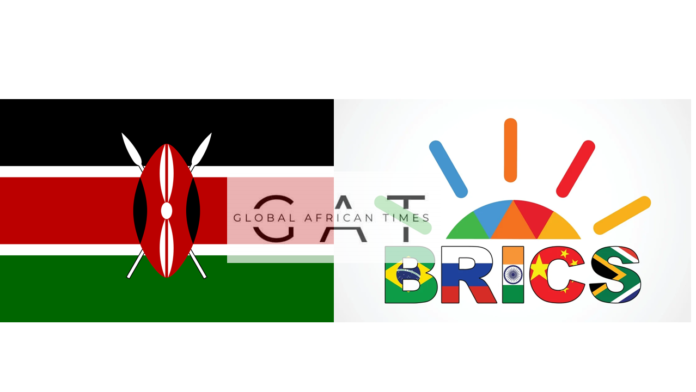A Top Chinese official, Li Xi, arrived in the Kenyan capital for bilateral talks on Monday. He was welcomed by officials, including William Ruto, at Nairobi State House. This is part of Kenya’s requests for China to support their bid to join BRICS.
During talks, William Ruto pledged to strengthen ties between the two nations. “Kenya, I want to assure you, is committed to promoting this partnership across Africa and also upholding the ‘One China’ policy,” Ruto said.
With their strategic partnership, the two nations are collaborating on development projects in the country.
Ruto has also asked for China’s backing for Kenya’s aim to join the BRICS group of emerging national economies. Currently, BRICS members make up about around 28% of the global economy.
BRICS is an acronym for the powerful grouping of the world’s leading emerging market economies, namely Brazil, Russia, India, China and South Africa.
The BRICS mechanism aims to promote peace, security, development and cooperation. It also aims at contributing significantly to the development of humanity and establishing a more equitable and fair world.
The first BRIC Summit took place in Yekaterinburg, Russia, where the elected leaders of the four countries formally declared the membership of the BRIC economic bloc. South Africa was invited to join the bloc in December 2010, resulting in BRICS. The group was founded in 2006; at that time, its members were Brazil, Russia, India and China. South Africa became a member in 2010, before several other countries, including Egypt and Ethiopia, joined at the start of this year.
BRICS statistics
- BRICS countries have increased their share of global GDP threefold in the past 15 years.
- BRICS’ share of global output will increase from18% (according to market exchange rates), to 25% to 26% over the next 10 years and even to one-third by 2030.
- In PPP terms, it is about 30% of world’s GDP at the moment. By 2020, it will be 37% to 38% and increasing to as much as 45% by about 2030.
- In 2011, the BRICS’ share of GDP, based on PPP amounted to about 20 % and 25% (estimated at US$13,7 trillion).
- BRICS countries occupy 30% of the global territory.
- They are home to 45% of the world’s population.
- The contribution to global economic growth over the last decade has reached 50%, which makes this group of states the leading power in global economic development.
- BRICS accounted for approximately 11% of global annual foreign direct investment (FDI) flows in 2012 (US$465 billion).
- BRICS account for 17% of world trade.
- BRICS’ combined foreign reserves are estimated at US$4 trillion.
- Some analysts predict that BRICS could become as big as the Group of 7 (the United States of America [USA], Japan, Germany, France, Britain, Canada and Italy) by 2027.
- South Africa has a population of more than 50 million and an economy worth approximately US$527 billion. Its per capita income level at PPP compares favourably with BRICS partners, estimated at US$11 000 (after the Russian Federation at US$16 700 and Brazil at US$11 845).
BRICS continued to attract the attention of the world as more African countries are looking to join the organization in a bid to counter the dominance of the hitherto world powers i.e the G7.
The G7 is an informal bloc of industrialized democracies—the United States, Canada, France, Germany, Italy, Japan, and the United Kingdom (UK)—that meets annually to discuss issues such as global economic governance, international security, and, most recently, artificial intelligence (AI). Proponents say the forum’s small and relatively homogenous membership promotes collective decision-making, but critics note that it often lacks follow-through and excludes emerging powers.
Global Analysts wonder if the G7 will continue to hold powers as they have done in previous years. Or is the BRICS or BRICKS going to give them a run for their money and influence.
Source: BRICS, Global African Times




